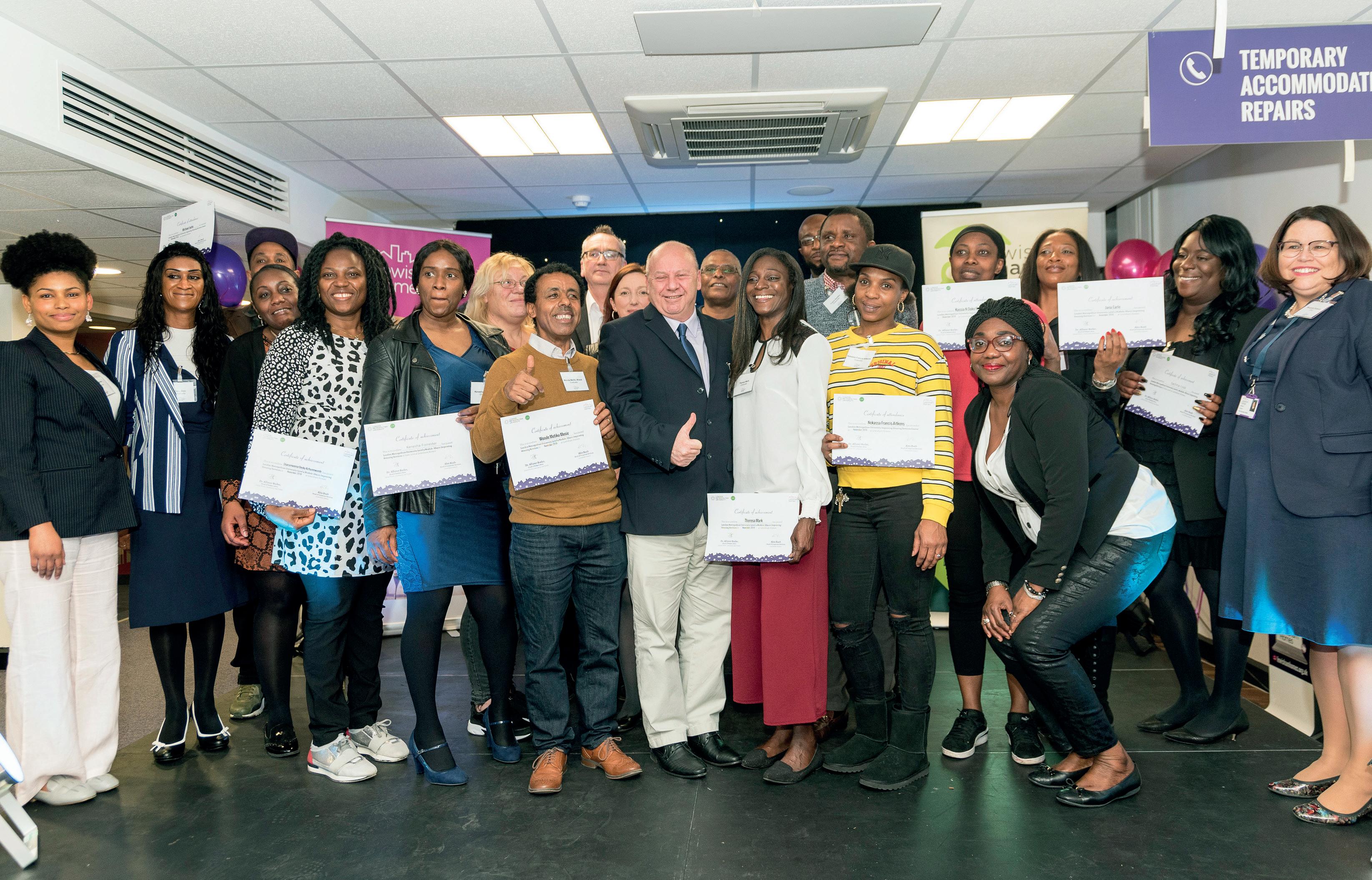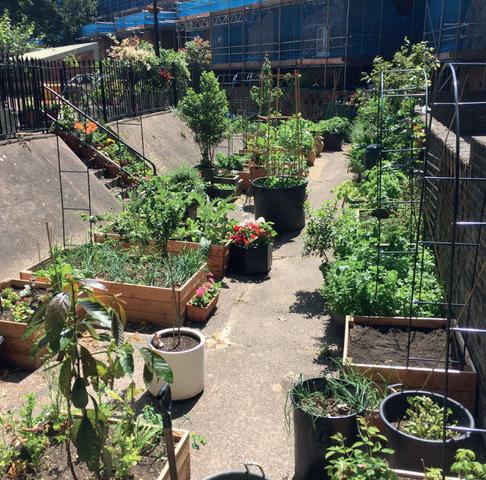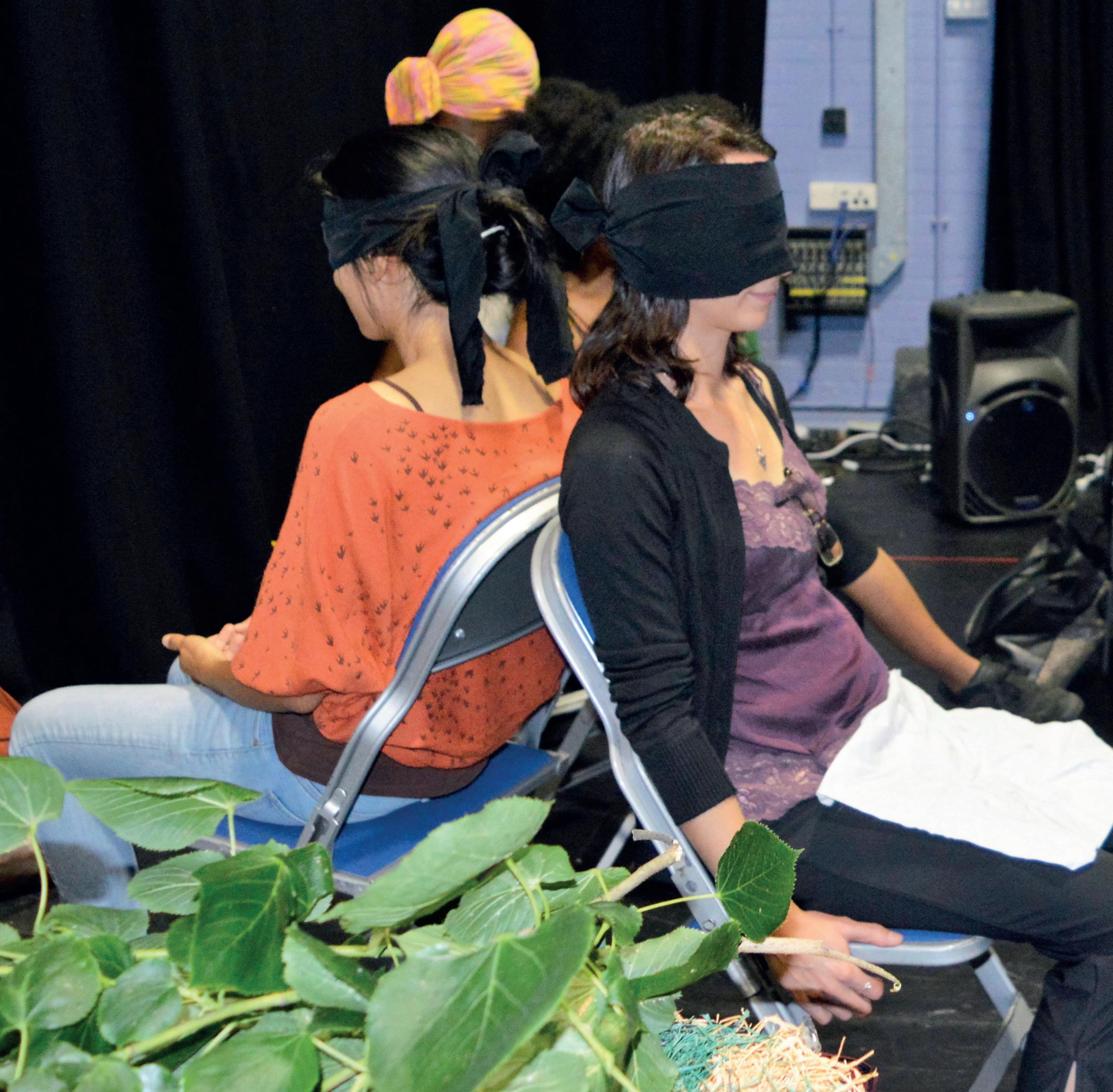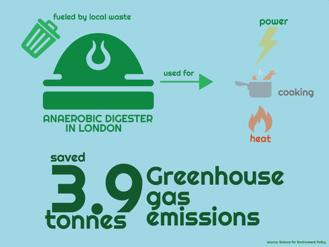
8 minute read
Battle for Community Spaces
from W12P188
by PDF Uploads
The Battle for Community Spaces Wards Corner Community Coalition and Seven Sisters Market
01 Background
The community struggle for Wards Corner and Seven Sisters Market dates back to 2003, when the site was first listed by Haringey Council for redevelopment.
Seven Sisters Market is made up of diverse ethnic traders and businesses and is located in Wards Corner Building at Seven Sisters, Tottenham. The market is also as known as Pueblito Paisa, a reflection of the predominant Latin American origin of the traders. The market plays an important cultural, symbolic, social and economic role for Latin Americans in London, and is listed as an Asset of Community Value. The wider city block also includes many traders and businesses providing specialist goods and services for other diverse ethnic and low-income groups, as well as terraced housing. The building which houses the market is owned by Transport for London, with ownership of the rest of the site being fragmented amongst a range of landowners.
In 2007 Haringey Council selected Grainger Plc as its preferred developer. The Grainger plan would demolish the entire Wards Corner city block, replacing it with zero affordable housing and chain retail shops and restaurants. Since then, traders, local businesses and residents have fought through the planning process, the courts, protests and demonstrations to stop the demolition of and to deliver their ambitions for communityled development and self-management at Wards Corner/Seven Sisters Market. Despite a disappointing outcome of the latest legal challenge of the proposed Compulsory Purchase Order to facilitate the Grainger development in October 2019, the struggle continues with further legal action under consideration, new protests planned, ongoing efforts to persuade Haringey Council and Transport for London to think again, and the latest iteration of the community plan out to consultation.
The community plan offers an alternative landmark development for Tottenham. The development’s aim is to restore the iconic locally-listed Wards building which plays a pivotal role in Tottenham’s identity and history. The Plan provides retail/café space, small business office space and important space for community uses such as childcare, advice services, meeting rooms and/or arts-exhibition space.
Following years of community action and planning, supported by a series of architects (Ricardo Pelayo, Glen Lake, Abigail Stevenson), planning permission was granted in 2014 (several previous iterations were not determined by the Council). Permission expired in 2017, after the standard three year period, as the ongoingCompulsory Purchase Order to facilitate the Grainger developmentthe community plan due to limited resources. However, in 2019 the plan was resubmitted, led by architects Unit 38 (Ben Beach, David McEwen and Jamie Hignett). The plan remains out to consultation at the time of writing.
02 University collaborations
The varied groups fighting to save Wards Corner and Seven Sisters Market have worked closely with university students and researchers over the years, including:
‘Expert’ statements given in support of the public inquiry into the proposed Compulsory Purchase Order to facilitate the Grainger development and Haringey Council’s scrutiny review of matters relating to Wards Corner/Seven Sisters Market by Sara Gonzalez and Myfanwy Taylor (University of Leeds), Patria Roman-Velazquez (Loughborough University), Alexandra Xanthaki (Brunel University) and Michael Edwards (University College London).
In 2013/14, an excellent collaborative project produced an online 3D interactive model of the community plan developed through the Creative Citizens collaboration with the Open University and the Royal College of Art (Giota Alevizou, Katerina Alexiou and colleagues).
In 2014, Myfanwy Taylor (then at University College London) conducted intensive engagement work with market traders, businesses and community leaders during the consultation on the community plan as part of her PhD research.
In 2019, Rebecca Neil and Mirelle Tchaphi (University of Westminster) provided planning advice and support while Myfanwy Taylor helped to coordinate the resubmission of the community plan as part of at the University of LeedsSeveral Masters students, in particular Alice Devenyns (University College London MSc Urban
Studies) and Nuria Benitez (Royal College of Art), provided crucial support in trader and community consultation, whilst completing their dissertation research on different aspects of the market.
General assistance with a wide variety of campaigning, organising and fundraising activities, carried out alongside or as part of students and academics’ research. By learning about the campaign by getting involved in it, a number of researchers have gone on to join the campaign and/or continue to support it beyond the confines of their specific research project.
03 Reflections on the benefits and challenges of university collaboration
These varied collaborations have played an important role in sustaining the lengthy and still ongoing struggle to save Wards Corner and Seven Sisters Market, at a time when few other resources have been available and traders, businesses and residents have been at risk of burn-out.
Community groups involved have welcomed these collaborations, offering up their time to support students’ learning and their research projects and working to establish projects that are mutually-beneficial.
There has, however, been little if any coordination or partnership amongst the various universities and researchers involved, which has led to a rather ad-hoc approach at times. Collaboration has often been instigated by students/researchers, rather than the community groups involved; there is scope for the groups to take more control and leadership over priorities for collaboration. As research projects can be quite short-term, it would also be helpful to move towards longer-term collaborations in order to achieve mutually-beneficial desired outcomes for all.
Incorporating capacity building and skills development for traders, businesses and residents into any new university collaborations would also help to ensure the groups involved are strengthened.

©Saif Osmani ‘Queens Market’ The Future of London Street Markets conference took place in June 2019 Following a long battle with the new London Plan’s policy makers at the Greater London Authority’s Examination in Public to gain better recognition for the social role of street markets, Saif Osmani of Friends of Queen’s Market, alongside Mama D of Community Centred Knowledge, Just Space and Leeds University collaborated together to hold ‘The Future of London’s Street Markets’ conference in Brixton in south London.

The pressure on public spaces has meant that ethnic minority spaces and especially street market sites are being seen as lucrative real estate sites solely and not much consideration is being given to the social impact of new developments onto existing and long-standing communities. Their conference was to ‘counter’ and offer alternative viewpoints to the London Mayor’s office hosting the 10th International Public Markets Conference held a few weeks earlier in London, where an average ticket was being sold at £500, well out of reach of ordinary Londoners who would normally visit street markets. A mixture of community members, markets activists, traders, local politicians and a member of the GLA Markets Board attended their free conference with food being served from Brixton’s food market.


A report is due to be released detailing the findings from the conference soon. To find out more, email
streetmarketsuk@gmail.com
When considering the different voices and the range of narratives they hold concerning what London is and can be as a city, the voices we hear least from are not just those who are marginalised in its present but also those that are buried in its past.
What if planning, designing and consultations about London’s built environment and the future of its town centres; the state of its social infrastructure; its heritage and culture and the lives of its future generations were to take into account what can be learnt from a reflection of how London as we experience it in the present, was forged from the contributors to its past, both locally and internationally?
London is a world city in many ways: its food culture, its architecture, its places of interest and its market places tell a story of international connections of many kinds. From waves of immigration from places near and far and journeys of exploration and exploitation of places distant and close by, of trading and raiding, of industry and banking, of science and folk lore, London is a city of many layers.
Community Centred Knowledge has explored these layers, curating an immersive theatre of London’s past, beginning with its river, the Thames and ending with the question of its possible disappearance in the future, if we are not mindful of how we shape it in the present.
The London Journey© enables the many voices of London to have a say in its self-definition and by so doing insert these into a shared vision of London’s future.
The London Journey is one that can be recreated across each of London’s localities, bringing their particular qualities of character and stories to bear in describing how London’s past has shaped the way it is today and as such presents a multi-voiced platform to articulate its future. As such the London Journey is a good basis for launching discussions between the many knowledges that London holds into a full and rich discussion about the next steps to be taken.
‘History is the tale of those equipped to make their own stories be the ones that are taught to the next generation’.(Mama D Ujuaje)
If your group or organisation would like to host the London Journey get in touch via communitycentredknowledge.org







